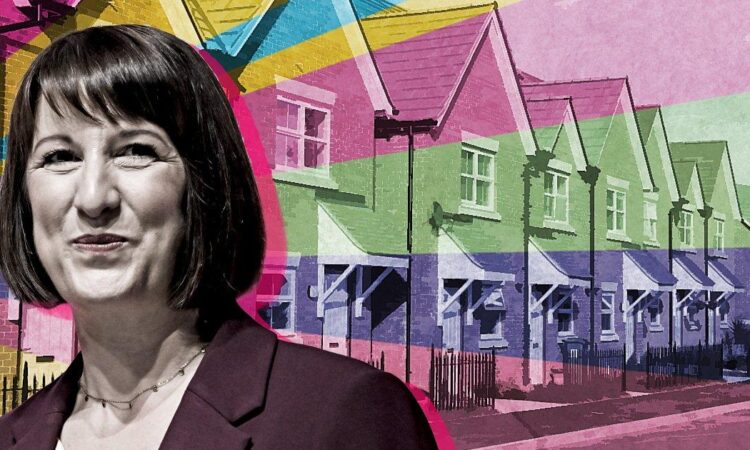
For months, Prime Minister Keir Starmer has warned that the autumn Budget is likely to be ‘painful’, and that ‘things will get worse before we get better’ for the UK economy.
Today, Chancellor Rachel Reeves delivered her first ever Budget, and alongside ‘the commitments on housing specifically ‘difficult decisions’ on the likes of national insurance, minimum wage, and fuel duty, she announced a number of measures on housing specifically.
To help you make sense of the jargon Metro chatted to a property expert about how these issues could affect homeowners and renters alike, from stamp duty updates to measures on social housing and capital gains tax.
Follow the latest updates on the Autumn 2024 Budget on our live blog
What has Labour announced for housing in the Autumn 2024 Budget?
Stamp duty
The first was on stamp duty – AKA, the tax paid by the homeowner when purchasing houses, flats and other land and buildings over a certain threshold. At present, no stamp duty is required on anything worth up to £250,000, and first-time buyers are exempt up to £425,000.
However, as Marc von Grundherr, Director of Benham and Reeves, tells Metro, the relief was set to end in March 2025, with stamp duty ‘reverting back to previous thresholds, which would see existing homeowners liable on purchases over £125,000.’
And although the relief on stamp duty was always intended to be temporary -was first introduced as the Stamp Duty Land Tax (Relief) Bill on October 24, 2022, before being given Royal Assent and passed as an Act on February 8, 2023 – the Chancellor’s announcement didn’t commit to extending it.
As such, first-time buyers could soon be expected to pay the tax on any property or land valued over £300,000 – which is a considerable amount, considering that in London the average property value comes in at £688,856, according to statistics from Zoopla (more than double the threshold).
But as Marc notes, the price of an average home often falls below the £300,000 limit, and many existing homeowners will be exempt if they move.
On this topic, Rachel Reeves revealed the government would be cracking down on second homes by increasing the higher rate of stamp duty for additional dwellings from 3% to 5% – a move she claimed would support more than 130,000 people buying their first home or moving home over the next five years.
Capital gains tax increases
Elsewhere, there’s more bad news for landlords and second homeowners, who have been hit by an increase to capital gains tax rates on on carried interest, alongside a promise from the Chancellor to deliver further reforms in the coming years.
‘The worry for renters is that this could cause more landlords to exit the private rental sector and, in doing so, the supply of quality rental accommodation will decline further,’ says Marc.
‘Tenants are already facing fierce competition due to high demand, with this demand and supply imbalance driving rents skywards.
‘If landlords are also penalised further with respect to the profitability of their portfolio we could see more of them choose to exit the sector, or they will have to pass on the increase in costs to renters – so it’s ultimately tenants who are going to pay the price.’
Flammable cladding
Following the disaster at Grenfell Tower, many homeowners whose properties include flammable cladding have spoken out about struggling to afford the necessary remedial works.
The government will also invest in the renovation sites across the UK, including at Liverpool Central Docks, where 2,000 new homes have been promised.
House building and affordable homes
Now however, the Chancellor has pledged £1billion to accelerate the removal of dangerous cladding on homes.
Reeves’ Budget included the announcement that £5billion would be invested in housing, increasing the Affordable Homes Programme to £3.1billion and provide £3billion worth of support and guarantees to increase the supply of homes and support small housebuilders.
Social housing
As part of this, The i reports £500 million in funding will be directed towards social housing, which will guarantee the construction of up to 5,000 affordable homes.
The government told the newspaper it would commit to a ‘consultation on a new long-term social housing rent settlement,’ as Reeves had previously noted that Britain’s housing crisis had ‘put the brakes on economic growth.’
According to the Chancellor, Labour is also committed to ‘rebuilding Britain by ramping up housebuilding.’
There are more than 323,000 households currently on waiting lists for social housing in the capital alone, according to Centre for London, higher than any other region in England.
East London has the highest number of households on the waiting lists at over 100,000 across its 10 boroughs, compared to North and South London, which both have under 50,000.
What’s more, those on the list can expect to wait between 844 days (which is 2 years and 3 months) for a one-bedroom property. And the time gets worse for a family home with four or more bedrooms, reaching a whopping 2,304 days (or 6 years and 3 months).
Across the UK, Gov UK figures show that there were 1.21 million households waiting for social housing in March 2022, marking an increase of 2% (from 1.19 million) between 2020 and 2021.
Do you have a story to share?
Get in touch by emailing MetroLifestyleTeam@Metro.co.uk.
MORE : Everyone is saying the same thing about Labour’s employer National Insurance hike
MORE : My kids go to private school – Labour’s VAT plans are reverse discrimination
MORE : This is how much the price of your pint is going to fall by
Get all the need-to-know property news, features and advice from Metro every week.
This site is protected by reCAPTCHA and the Google Privacy Policy and Terms of Service apply.




